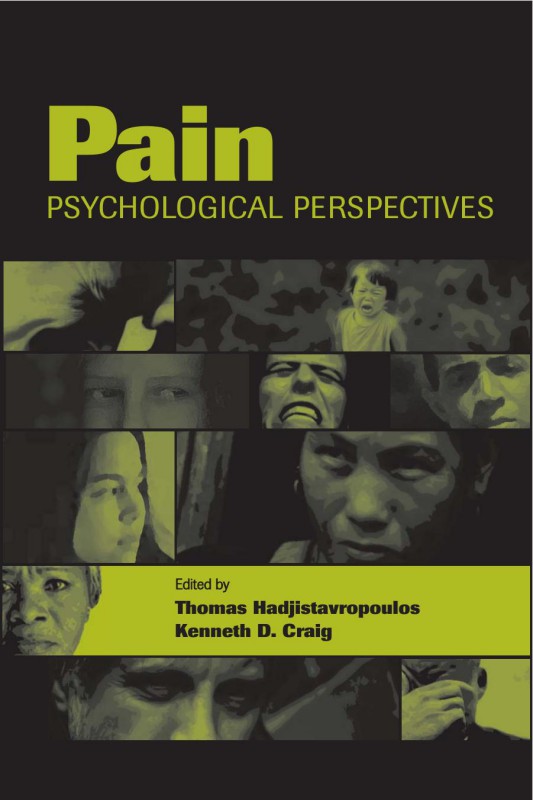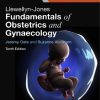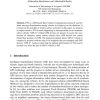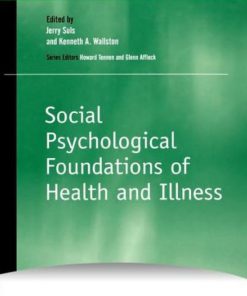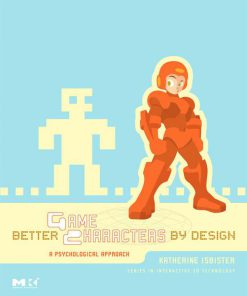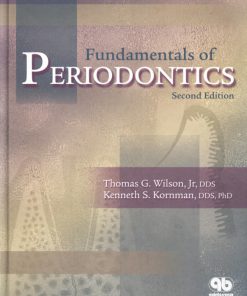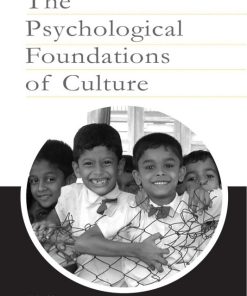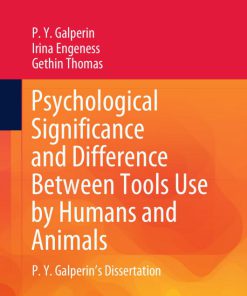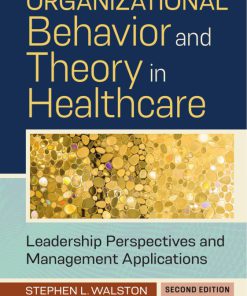Pain Psychological Perspectives 1st edition by Thomas Hadjistavropoulos, Kenneth Craig ISBN 0805842999 9780805842999
$50.00 Original price was: $50.00.$25.00Current price is: $25.00.
Authors:Thomas Hadjistavropoulos , Kenneth D. Craig , Tags:TEAM DDU , Author sort:Thomas Hadjistavropoulos , Kenneth D. Craig , Comments:Comments:Team DDU
Pain: Psychological Perspectives 1st edition by Thomas Hadjistavropoulos, Kenneth D. Craig – Ebook PDF Instant Download/Delivery. 0805842999, 978-0805842999
Full download Pain: Psychological Perspectives 1st Edition after payment
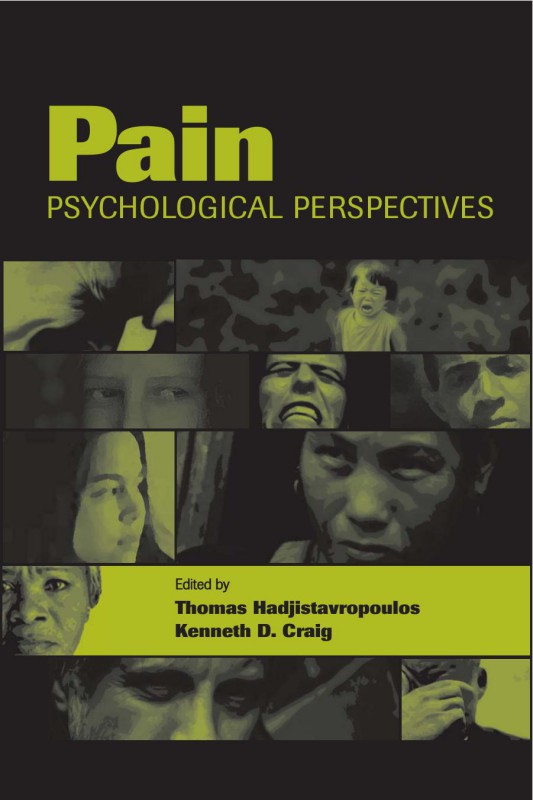
Product details:
ISBN 10: 0805842999
ISBN 13: 978-0805842999
Author: Thomas Hadjistavropoulos, Kenneth D. Craig
This invaluable resource presents a state-of-the-art account of the psychology of pain from leading researchers. It features contributions from clinical, social, and biopsychological perspectives, the latest theories of pain, as well as basic processes and applied issues. The book opens with an introduction to the history of pain theory and the epidemiology of pain. It then explores theoretical work, including the gate control theory/neuromatrix model, as well as biopsychosocial, cognitive/behavioral, and psychodynamic perspectives. Issues, such as the link between psychophysiological processes and consciousness and the communication of pain are examined. Pain over the life span, ethno-cultural, and individual differences are the focus of the next three chapters.
Pain: Psychological Perspectives addresses current clinical issues:
* pain assessment and acute and chronic pain interventions;
* the unavailability of psychological interventions for chronic pain in a number of settings, the use of self-report, and issues related to the implementation of certain biomedical interventions; and
* the latest ethical standards and the theories.
Intended for practitioners, researchers, and students involved with the study of pain in fields such as clinical and health psychology, this book will also appeal to physicians, nurses, and physiotherapists. Pain is ideal for advanced courses on the psychology of pain, pain management, and related courses that address this topic.
Pain: Psychological Perspectives 1st Table of contents:
1. The Gate Control Theory: Reaching for the Brain
- A Brief History of Pain in the 20th Century
- The Gate Control Theory of Pain
- Beyond the Gate
- Phantom Limbs and the Concept of a Neuromatrix
- Outline of the Theory
- The Body-Self Neuromatrix
- Psychological Reasons for a Neuromatrix
- Pain and Stress
- Pain and Neuroplasticity
- Denervation Hypersensitivity and Neuronal Hyperactivity
- The Multiple Determinants of Pain
- References
2. Biopsychosocial Approaches to Pain
- Traditional Biomedical Model
- Psychodynamic Models
- Gate Control Theory
- The Biopsychosocial Approach
- The Operant Model
- Model Summary
- Empirical Overview
- The Glasgow Model
- Model Summary
- Empirical Overview
- The Biobehavioral Model
- Model Summary
- Empirical Overview
- Fear-Avoidance Models
- Model Summary
- Empirical Overview
- Toward an Integrated Diathesis-Stress Model
- Conclusions
- References
3. Pain Perception, Affective Mechanisms, and Conscious Experience
- The Mind-Body Problem
- Pain as Emotion
- What Is Emotion?
- Emotion and Evolution
- Cognition and Emotion
- The Limbic Brain and Mechanisms of Emotion
- The Autonomic Nervous System and Emotion
- Nociception and the Limbic Brain
- Locus Ceruleus and the Dorsal Noradrenergic Bundle
- The Ventral Noradrenergic Bundle and the HPA Axis
- Central Serotonergic Pathways
- Two Stages in the Emotional Aspect of Pain
- Pain, Stress, and Sickness
- Clinical Implications
- References
4. Social Influences and the Communication of Pain
- The Functions of Pain Communication
- Others’ Pain Reactions as Signs of Danger
- Pain as an Instigator of Altruistic Behavior
- Pain Expression as a Determinant of Social Bonding and Relationships
- A Communications Model of Pain Expression
- Pain Experience
- Modes of Pain Expression
- Decoding Pain
- Actions to Assist Persons in Pain
- Conclusions
- Acknowledgments
- References
5. Pain Over the Life Span: A Developmental Perspective
- Introduction to Childhood Segments of the Life Span
- Age Differences in Pain Experience and Report During Childhood
- Psychosocial Influences on Pain Experience in Childhood
- Age Differences in Neurophysiological Mechanisms of Pain in Childhood
- Age Differences in Pain Assessment During Childhood
- Treatment Considerations During Various Stages of Childhood
- Pain During Adulthood
- Age Differences in Pain Experience and Report During Adulthood
- Psychosocial Influences on Pain Experience in Adulthood
- Age Differences in Neurophysiologic Mechanisms of Pain During Adulthood
- Age Differences in Pain Assessment During Adulthood
- Treatment Considerations Across the Adult Life Span
- Concluding Remarks
- References
6. Ethnocultural Variations in the Experience of Pain
- Treatment Disparities
- Pain Expression
- Reflections
- Acknowledgments
- References
7. Social Influences on Individual Differences in Responding to Pain
- A Model of Psychosocial Factors in Pain Etiology
- Individual Behaviors Affected by Social Processes
- Interpersonal Behavior
- Group and Intergroup Behavior
- Higher Order Factors
- Gender as a Feature Addressed at All Levels
- Measuring Responses to Pain at All Levels
- Conclusions
- Acknowledgments
- References
8. Assessment of Chronic Pain Sufferers
- Biopsychosocial Model of Pain Assessment
- The Challenge of Assessing Chronic Pain
- Psychological Assessment of Chronic Pain Sufferers
- Initial Screening
- Inappropriate Medication Use/Substance Abuse
- Dysfunctional Physical, Work, Family, or Social Life
- Involvement in Litigation/Disability Compensation
- Beliefs About Current and Future Pain and Functioning
- Purposes of Comprehensive Psychological Evaluations
- Preparation of Patients for Evaluations
- Components of Psychological Evaluations
- Interview
- Significant Other Interview
- Case Example
- Standardized Self-Report Instruments
- Cognitive Testing
- Ongoing Assessment and Reassessment
- Psychological Assessment Prior to Opioid Treatment
- Impairment, Disability, and Vocational Assessment
- Malingering
- Linking Assessment with Treatment
- Treatment Matching
- Conclusion
- Acknowledgments
- References
9. Psychological Interventions for Acute Pain
- Types of Interventions
- Information Provision
- Relaxation and Related Techniques
- Cognitive Strategies
- Controlled Trials
- Laboratory Studies
- Clinical Trials in Adults
- Clinical Trials in Children
- Comparisons with Pharmacological Management
- Moderators of Response to Psychological Interventions
- Coping Strategies
- Coping Style
- Other Moderators
- Barriers to Effective Clinical Use of Psychological Interventions
- Conclusions
- Acknowledgments
- References
10. Psychological Interventions for Chronic Pain
- Operant Conditioning
- Evidence and Commentary
- Respondent Therapy
- Evidence and Commentary
- Cognitive-Behavioral Therapy
- Evidence and Commentary
- Family and Marital Therapy
- Evidence and Commentary
- Psychodynamic Psychotherapy
- Evidence and Commentary
- Secondary Psychological Intervention After Medical Treatment
- Pain in Children
- Conclusion
- References
11. Psychological Perspectives on Pain: Controversies
- The Nature of Pain and Its Definition
- Neuroscience Questions
- Social Determinants
- Clinical Issues
- Public Health and Policy Issues
- Conclusions
- Acknowledgments
- References
12. Ethics for Psychologists Who Treat, Assess, and/or Study Pain
- Ethics Theory
- Application of Ethical Theory
- Ethical Standards by IASP and APS
- IASP Guidelines
- APS Guidelines
- Pressing Ethical Issues in Pain Treatment
- References
People also search for Pain: Psychological Perspectives 1st:
what are the five psychological perspectives
pain psychology example
psychological influences on pain perception
acute pain psychology
a psychological perspective

